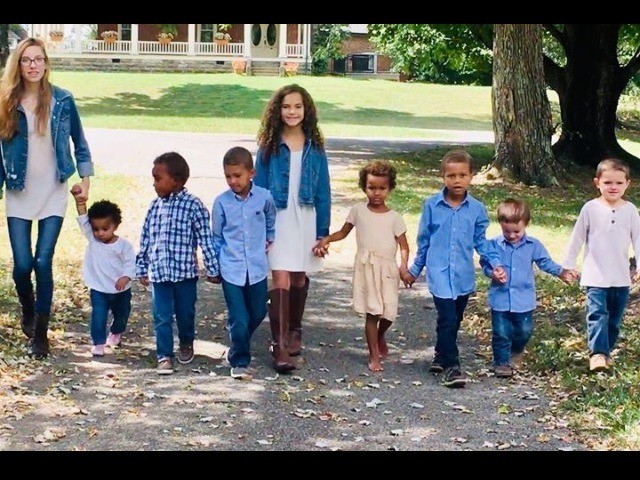South Carolina is fighting back against a 2019 American Civil Liberties Union (ACLU) lawsuit targeting faith-based foster care agencies, with Gov. Henry McMaster (R) calling the suit a “shortsighted attack against every South Carolinian’s constitutionally-protected religious liberty.”
Late last week, attorneys for McMaster and Michael Leach, State Director for the South Carolina Department of Social Services, filed a motion for summary judgment in the lawsuit, in which the ACLU claims the state violated the Establishment Clause and the Equal Protection Clause by partnering with a faith-based institution.
The motion for summary judgment cites recent religious liberty victories out of the Supreme Court, Fulton and Kennedy, to prove the state’s compliance with the Constitution. The document also points out that the faith-based institution in question, Miracle Hill Ministries, “is a private agency which was never reimbursed by the State for its recruitment and support of foster parents in the licensing process” and no longer receives government funding, meaning “Plaintiffs’ claims are moot.” Miracle Hill chooses to partner with families who share its Christian faith and has an 80-year tradition of recruiting and serving families.
McMaster said in a statement:
Over 3,800 of South Carolina’s children are currently in foster care and we need all the help we can get to see that they are placed in loving homes. …We will continue to fight against any attempt to stop our private partners from being able to help provide these critical services simply because they choose to do so in accordance with their faith.
In 2018, McMaster issued an Executive Order to ensure South Carolina recognizes the constitutionally protected freedoms of faith-based organizations. In 2019, the Department of Health and Human Services (HHS) granted the state a waiver from a 2017 Obama-era regulation which added “religion” and “sexual orientation” to a statute prohibiting states from using funds in a discriminatory fashion “on the basis of the race, color, or national origin.”
Following the waiver, the ACLU and Equality SC “engaged in extensive Twitter solicitation of individuals who could apply to Miracle Hill in hopes of being ‘rejected’ and bringing litigation,” the motion states. “…Although Plaintiffs were aware of opportunities to foster through other CPAs in their area or with SCDSS directly, they admit they made no attempt to do so.”
The Becket Fund for Religious Liberty, a law firm representing defendants in the case, noted that “rather than reach out to any other agency or the state of South Carolina, which supports and licenses foster families directly, the ACLU sued South Carolina and the federal government, alleging that allowing Miracle Hill to serve foster families violated the law.”
Miles Coleman, partner at Nelson Mullins, another law firm representing defendants, said:
South Carolina’s efforts to protect all avenues of foster care should be applauded, not forced into a courtroom. Too many places around the country have shuttered religious foster care agencies, making it harder to find children a home. South Carolina is doing all it can to prevent that.
The motion cites the Supreme Court’s 9-0 decision in Fulton v. Philadelphia which overturned a lower court ruling regarding the City of Philadelphia barring foster children from being placed with the Catholic Social Services due to its unwillingness to endorse same-sex couples.
“Just as in Fulton, South Carolina licenses many private agencies. This provides families looking to open their homes to children in need with numerous opportunities to find an agency that will be a good fit, while also protecting the religious freedom of all South Carolinians,” the motion reads.
The motion also points to the Supreme Court’s recent 6-3 Kennedy v. Bremerton School District decision, in which the Court sided with a high school football coach who was fired for praying on the field after games.
The motion states:
Plaintiffs’ Establishment Clause claims fail under Kennedy, which confirmed that the Lemon test relied upon by Plaintiffs is no longer good law. Instead, courts look to historical practices and understandings to interpret the Establishment Clause, and our Nation has a long history of accommodating the work of religious orphanages and child welfare agencies which help to find homes for children in need.
Kennedy also confirmed that the First Amendment’s Religion Clauses are not at war with one another, such that obeying one violates the other. The accommodation required by the Free Exercise Clause does not—and cannot—violate the Establishment Clause. Nor can Plaintiffs’ Equal Protection claims succeed where South Carolina had a more than rational basis to permit the private actions of a private actor.
At bottom, South Carolina has protected the religious freedom of its citizens in a way that helps to provide homes for children in need. It provides those services itself, without discrimination, and it allows diverse private agencies to continue their good work of helping find and support homes for children. The Constitution protects, not prohibits, this critical work.
The case is Rogers v. United States Department of Health and Human Services, No. 6:19-cv-1567 in the United States District Court for the District of South Carolina.

COMMENTS
Please let us know if you're having issues with commenting.